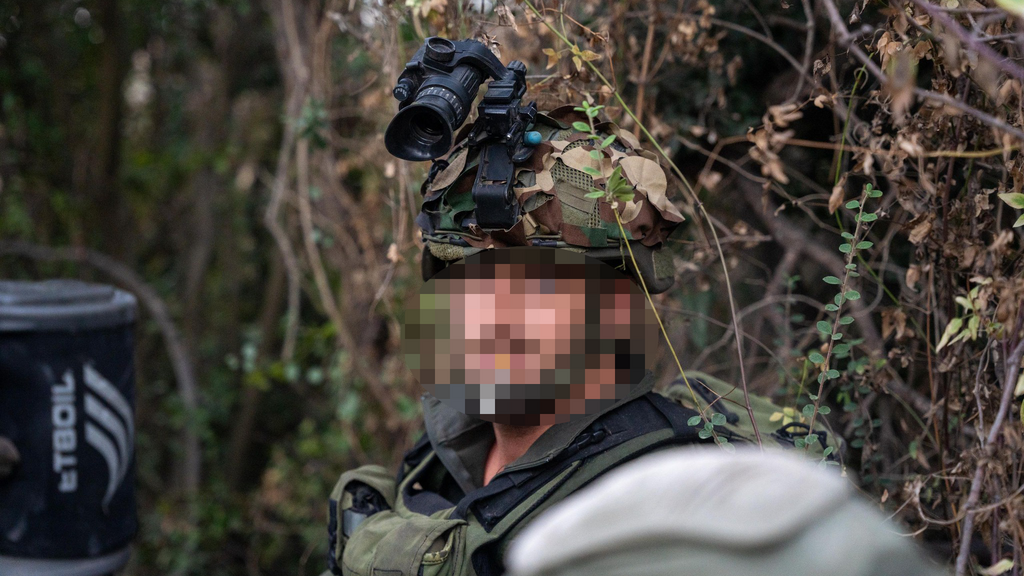"I owe 20,000 shekels to National Insurance with no state support. Self-employed reservists who must stop working can’t claim unemployment benefits ‘between rounds’ and are left without income until the next call-up."
In search of psychological support, Roi contacted Amit, a Defense Ministry initiative launched late last year. The program offers 12 individual or couples therapy sessions, self-help tools and experiential workshops to ease the transition back to civilian life. "I filled out the questionnaire, which determined I needed therapy," Roi said. "But then I was told there’s a shortage of therapists. The representative was empathetic and apologetic, but there wasn’t much she could do."
Overwhelming demand for psychological support
Since the program’s launch, 170,000 people have registered, including about 4,000 reservists seeking psychological treatment. The overwhelming demand, combined with a shortage of available therapists, has left many frustrated. Like Roi, they have been unable to access the assistance they were promised.
Meir, 52, from Rishon Lezion, has served approximately 250 reserve days in the 300th Brigade. After his third deployment ended in December, he sought therapy to determine if he was suffering from PTSD. "All my team members, whether in their 30s or 50s, face the same struggles after leaving service," he said.
In December, Meir applied for Amit assistance but encountered delays. "They promised to get back to me, but after repeated calls and emails, I was only told they were overwhelmed."
Get the Ynetnews app on your smartphone: Google Play: https://bit.ly/4eJ37pE | Apple App Store: https://bit.ly/3ZL7iNv
A 40-year-old married father of three, who serves alongside Meir, also faced difficulties. "I downloaded the app, filled out all the forms and followed every step, but no one got back to me," he said. "When I finally reached someone, they told me they were swamped. They’re polite, but right now, there’s no real solution. I’m only asking for the help they advertised."
Many reservists are seeking therapy to process their battlefield experiences. Other available options include the 2540 program, which subsidizes therapy for those who served over 120 days, the Rehabilitation Department for pre-diagnosed PTSD cases and in-house IDF counseling.
'I need someone to listen and help'
After sharing his struggles in a Facebook post, Roi was referred to the Defense Ministry’s combat stress unit. "I received an outpouring of responses from others who feel the same way. Many struggle to open up about what they’re going through," he said. "Even after my evaluation, it looks like it’ll take time to get an appointment. But I won’t give up."
"Most of us will keep showing up for reserve duty—not because of what we get in return, but because of our values and moral duty. It’s our deep commitment to our comrades, our families and our units. But that doesn’t give anyone the right to exploit us."
Last month, Meir was finally referred for a psychological evaluation at the Rehabilitation Department. "When I arrived, there was a long line, and I realized many had stories just like mine," he said. The therapist diagnosed him with PTSD and recommended group therapy due to a lack of individual treatment slots. However, Meir struggles to open up in a group setting. "I need someone to listen to my problems and help me solve them. When I insisted on private therapy, they sent me back to the Amit program."
Since then, Meir has received repeated messages that the program is at capacity. When he offered to travel for treatment, he was still met with no response. "Right now, I’m on standby for another deployment this summer. Who knows when I’ll be called up next."
Aviram, 33, from Ramat Gan, has served 320 reserve days as a combat unit commander. He reached out to Amit for therapy and was referred to the Rehabilitation Department. "I expected a more discreet and personal experience. After building up the courage to go, I was shocked—it felt like a factory. But I tried to cooperate," he said.
"The therapist seemed focused on labeling me—either I have PTSD or I don’t. When he diagnosed me with anxiety, he suggested medication, even though I wasn’t interested."
Aviram, like Meir, was only offered group therapy, which was not suitable for him. "I made it clear that I’m not comfortable sharing my struggles in front of others. Two weeks later, they called back to offer group therapy again. I know this program has helped some people, but for me, it pushed me further away from seeking help."
Roi summed up the frustration: "People don’t understand the sacrifices we make and the challenges we face beyond this bureaucracy. The state wants me to be a soldier—then it should provide the right support."
In response, the Defense Ministry said: "The Amit program was launched to help discharged soldiers and reservists reintegrate into civilian life through fully funded services, including sports classes, yoga, group workshops and psychological therapy.
"The demand for psychological treatment continues to rise, and we are working intensively to increase the number of therapists. In the past week, 150 therapists have been added. We are also considering remote therapy options via Zoom and expanding group therapy sessions to meet demand. We remain committed to supporting all program participants and will continue working to provide solutions."





